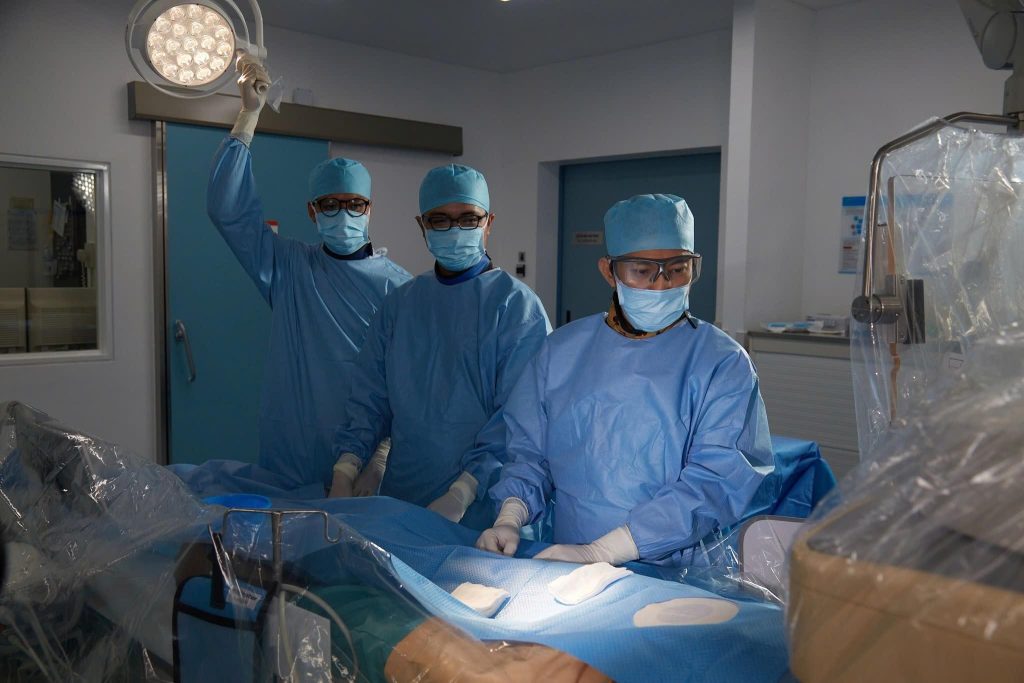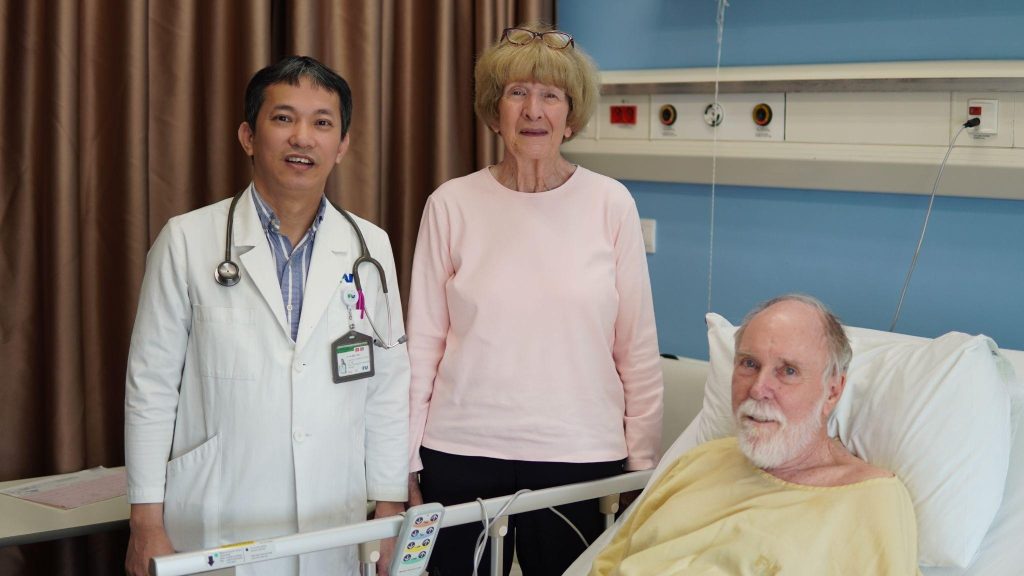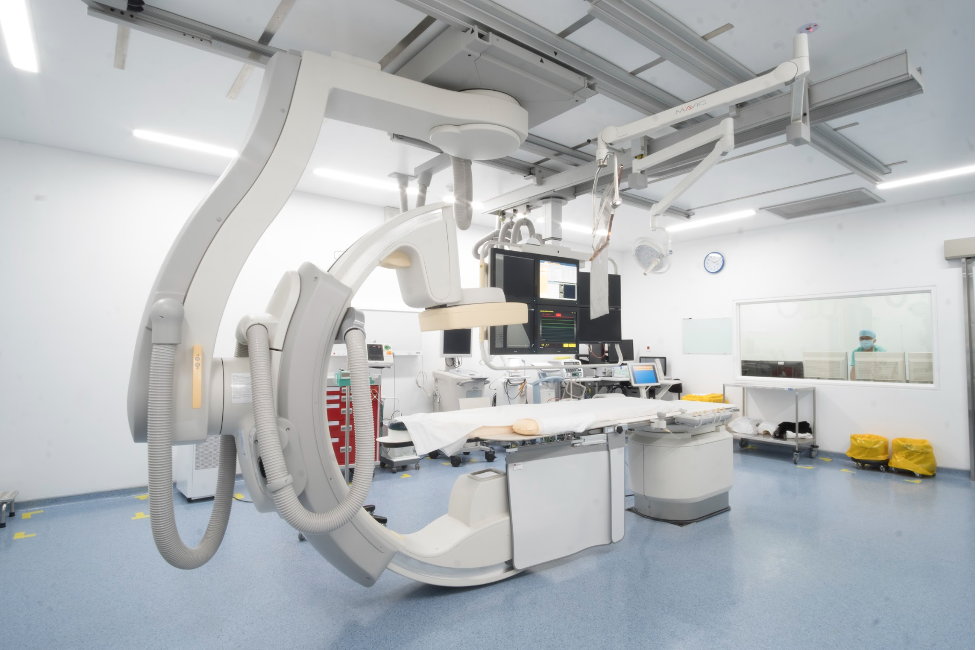Mr G.L. Swedberg, an 81-year-old American tourist, experienced sudden shortness of breath as his plane landed in Vietnam. Cardiologists at FV Hospital promptly performed a transcatheter aortic valve implantation (TAVI) using the latest generation technology, successfully saving his life.
Heart Attack Upon Landing in Ho Chi Minh City
During a trip to Vietnam in early April 2025, Mr Swedberg suffered a severe heart attack and intense shortness of breath shortly after landing at Tan Son Nhat International Airport. His wife, who was traveling with him, grew extremely concerned as Mr Swedberg had undergone coronary artery bypass surgery eight years earlier and was in the process of scheduling an aortic valve replacement for aortic stenosis in the US.
He was initially rushed to a hospital near the airport. Recognising the severity of his condition, the attending physicians recommended that he be transferred to FV Hospital, home to a fully equipped and modern Cardiology Centre.
At FV Hospital, Ho Minh Tuan, MD, PhD – Head of the Cardiology and Interventional Cardiology Department diagnosed Mr Swedberg with heart failure caused by severe aortic stenosis and reduced cardiac output. He warned that delaying treatment could result in sudden cardiac death.
Doctors immediately administered medication to relieve Mr Swedberg’s heart failure, reassessed the condition of his previous coronary bypass grafts, and took measures to prevent further complications. Once his condition stabilised, Dr Tuan developed a plan for definitive treatment of the aortic stenosis.
Remote Consultation with US Doctors Helps Optimise Treatment Plan in Vietnam
To determine the most effective treatment strategy, Dr Tuan conducted a remote consultation with Mr Swedberg’s cardiologist in the United States. Both parties agreed to proceed with transcatheter aortic valve implantation (TAVI) at FV Hospital.
“This patient was high-risk elderly, with a history of deep vein thrombosis and previous coronary artery bypass surgery. Therefore, we chose to use the latest generation valve, the Evolut™ FX, which meets the same standards as those currently used in the U.S. and Europe,” explained Ho Minh Tuan, MD, PhD.

Transcatheter Aortic Valve Implantation (TAVI) is a minimally invasive procedure routinely performed at FV Hospital, with a high success rate and no recorded complications. The Evolut™ FX, selected for Mr Swedberg’s procedure, features a flexible design that allows it to navigate complex arterial pathways with ease. It is also equipped with positioning markers for greater placement accuracy. Designed for long-term durability, the Evolut™ FX offers stable performance for 15 to 20 years, with a valve replacement rate of just 1–2% after two decades.
Notably, FV Hospital integrates AI-powered 3Mensio software to analyse cardiac structures and support precise, efficient planning for aortic valve replacement. Mr Swedberg’s procedure was completed successfully in just 90 minutes.
“The quality of care and treatment process at FV is on par with the United States.”

Mr Swedberg recovered well following the procedure. He participated in physiotherapy sessions to support his rehabilitation and was discharged three days later. FV’s Physiotherapy Department provided personalised guidance to help him continue his exercises during his journey home.
On the day of discharge, Mrs Swedberg expressed deep gratitude to FV’s medical team. Choosing to undergo a heart valve replacement in a foreign country was a significant decision, but one rooted in her trust in the hospital’s doctors and staff. “Before and after the procedure, Dr Tuan explained everything clearly. That gave us peace of mind and confidence in FV’s treatment approach,” she shared.
Having survived a life-threatening episode, Mr Swedberg was visibly grateful: “I’m incredibly thankful to Dr Tuan and the FV team for their excellent care and treatment.” He shared. “I’m especially impressed with the service quality and treatment process here at FV – everything felt just like home.”
Aortic Valve Stenosis: a Life-threatening Heart Condition
The aortic valve regulates blood flow from the heart into the aorta, supplying oxygen-rich blood to the body. When the valve becomes narrowed, it restricts blood flow, impairing heart function and leading to symptoms such as shortness of breath, chest pain, fatigue, rapid heartbeat, or fainting. In severe cases, it may lead to sudden cardiac death.

Patients with moderate to severe aortic valve stenosis face a high risk of mortality – up to 25% within the first year of symptom onset, and as high as 50% after two years. TAVI (Transcatheter Aortic Valve Implantation) is a minimally invasive procedure with a high success rate, offering an effective treatment option. However, due to its complexity, TAVI should only be performed at well-equipped medical centres by highly experienced cardiologists and interventional specialists.
With its state-of-the-art Cathlab and continuous adoption of advanced cardiovascular techniques, FV Hospital is one of the few medical centres in Vietnam capable of performing the TAVI procedure.

For more information about cardiovascular disease treatment, please contact the Cardiology & Interventional Cardiology Department at FV Hospital by calling (028) 35 11 33 33, or visit us at 6 Nguyen Luong Bang, District 7, Ho Chi Minh City.

 Vi
Vi 












